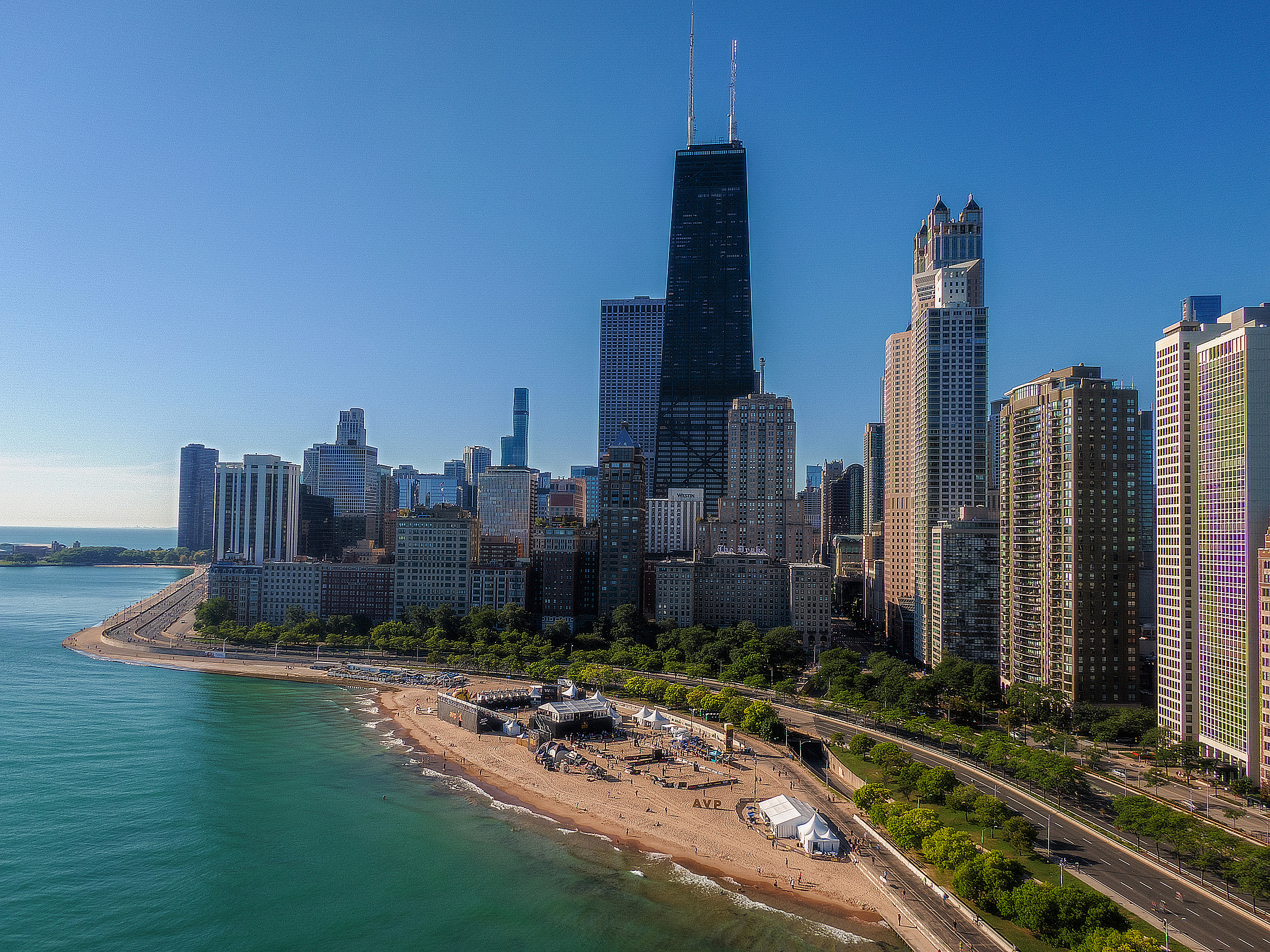Chicago mayor Brandon Johnson issued a statement on 24/8: "We are actively coordinating with our county and state partners to prepare for any unconstitutional deployment of military forces in Chicago".
Johnson's statement followed a Washington Post report citing sources familiar with the matter that said President Donald Trump wants the pentagon to send the national guard to Chicago to address crime, homelessness, and undocumented immigration in the nation's third-largest city.
This model could be applied to other major cities later. The pentagon will reportedly mobilize thousands of national guard troops to Chicago, Illinois, in September.
 |
Oak Street Beach in Chicago, 2021. Photo: AFP |
Oak Street Beach in Chicago, 2021. Photo: AFP
If approved, the plan would resemble controversial deployments in Los Angeles in June and in Washington, D.C., earlier this month. During a White House press briefing on 22/8, Trump announced Chicago as the next target, followed by New York, but didn't elaborate.
"Chicago is a mess. You have a very bad mayor. We’ll be going in next, not too tough," Trump said.
In response, Johnson stated that Chicago did not request the national guard and is exploring legal options to "protect Chicagoans from an overreach of federal power".
The Washington Post source indicated that the deployed national guard could work with immigration and customs enforcement (ICE) to locate and apprehend undocumented immigrants.
The White House and the pentagon declined to confirm the planned deployment. An anonymous US official confirmed the plan to ABC7 Chicago.
Illinois governor JB Pritzker said the state hadn't received any requests for assistance from the federal government nor requested federal intervention.
"There is no emergency here that would warrant the president taking over control of the Illinois national guard or deploying national guard from other states, or deploying active-duty military troops to our state," Pritzker said.
Chicago, Illinois, with a population of 2.7 million, has recorded the most homicides nationwide for 13 years, with 573 in 2024, although its homicide rate is lower than some other major cities like St. Louis, Detroit, Baltimore, and Washington.
Chicago faces challenges with drug-related crime, gangs, immigration, and homelessness. However, Johnson stated that homicides in the city have decreased by more than 30%, robberies by 35%, and shootings by 40% this year.
Duc Trung (According to Washington Post, ABC7 Chicago)












